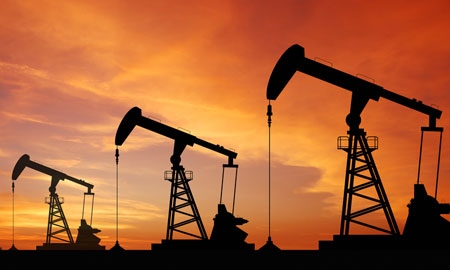The big talk in the energy resources game right now is about natural gas, since it’s a fossil fuel that is relatively cheap for end users, reliable and more clean-burning.
Meanwhile, Pakistan does lay claim to having huge reserves of oil and gas, while the Pakistan Petroleum Limited (PPL) is doing its part to tap into the nation’s reservoirs.
PPL contributes to over 20 per cent of domestic natural gas supplies (Liquefied Natural Gas and Liquefied Petroleum Gas), as well as producing crude oil. The company is a leader in the domestic exploration and production (E&P) sector by engaging in numerous international partnerships and upgrading their technology fast track status to meet global standards.
PPL Chief Executive Officer Asim Murtaza Khan, speaks about the company’s recent forays into natural gas.
“The Pakistani E&P infrastructure is quite ahead in the United Kingdom (UK) and is ahead in offshore,” says Mr Khan. “We should be collaborating more and more, exchanging technologies; we need off-shore technology here and what experience and technology we have here on the onshore is available for sharing with the UK companies.”
Mr Khan envisions a stronger influx of expertise and investments flowing in from the UK, since they have a strong background in off-shore drilling and the know-how to exploit natural gas resources. Yet, he understands that patience is essential.
“The technology transfer, if we are working abroad and we are working with other operators and partners whom we do not have the opportunity to work with in this country, the big multinationals, big players are not likely to come into Pakistan in the near future, they might in the long run,” Mr Khan says.
PPL does offer plenty of gas play opportunities in Pakistan for global E&P corporations. It operates the nation’s largest gas field at Sui, as well as five others at Khandot, Hala, Chachar, Adhi and Mazarani. The company holds a working interest in 12 partner-operated fields in the country. These fields pump an average of 1 billion cubic feet per day (cfd).
PPL has just acquired a 100 per cent shareholding stake of MDP E&P Ltd, a company based in England and Wales, with the subsidiary’s new name, PPL Europe Exploration & Petroleum Ltd.
PPL has already enjoyed tremendous success by launching its technology scale in cooperation with international companies.
“We go where they are working and we have achieved that. In Yemen, we are partners with Total,” says Mr Khan. “Total is a big name worldwide so there’s no way we had acquired that technology sitting here.”
The company has even acquired and began utilising Stress Field Detection (SFD) technology to conduct aerial reconnaissance flights to identify reservoirs and potential hydrocarbon traps.
PPL plans to focus on the natural gas market to help Pakistan overcome an over-dependence on oil imports. As the national economy is enjoying a rapid rise, there’s growing demand for power to maintain its long-term sustainable national development. Hence, natural gas production could fill in the gap.
“The probability of bringing the effects of oil or if gas is converted into LNG, there is always a possibility to bring the product to the country,” Mr Khan says. “And since it’s not going to be meeting the entire demand, but at least if it’s a component it helps save foreign currency.”
PPL has big dreams for its natural gas production activities. The company can achieve its goals on a grander scale through global partnerships while taking advantage of more foreign oil and gas equipment expertise.

0 COMMENTS